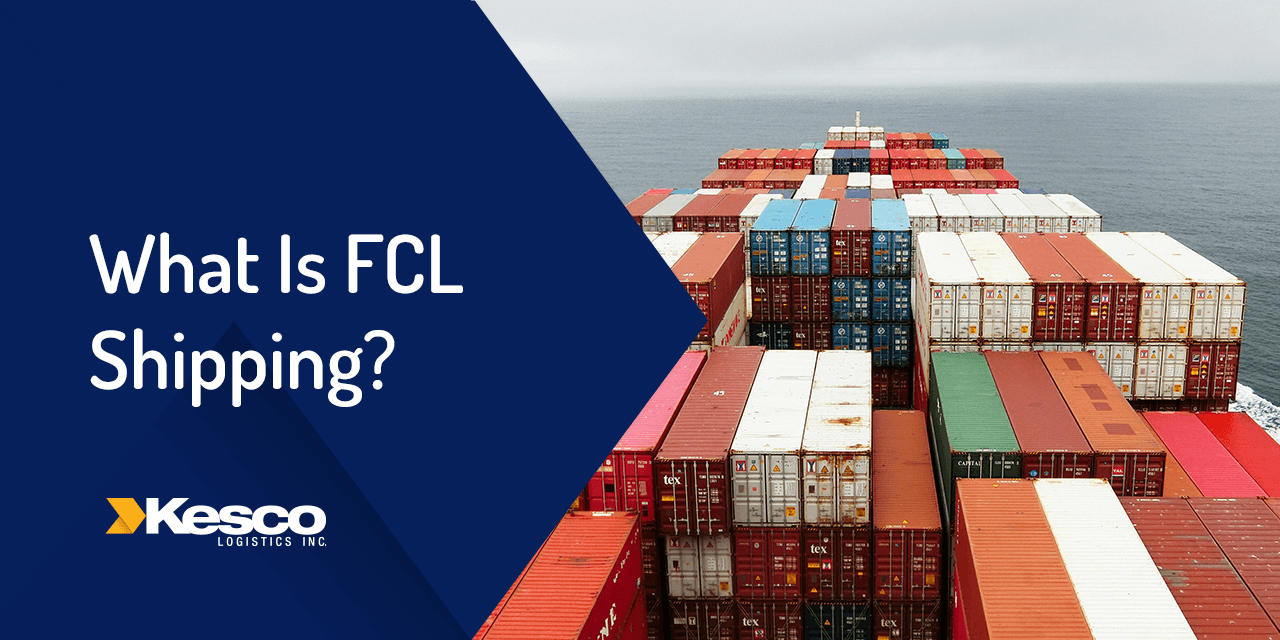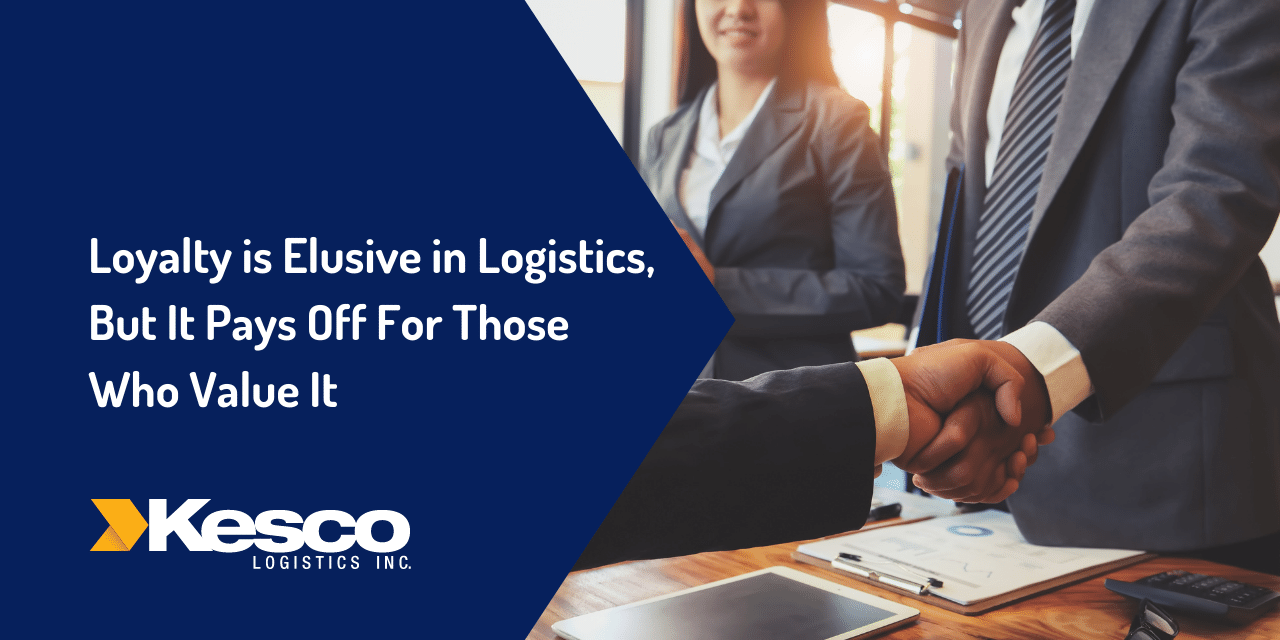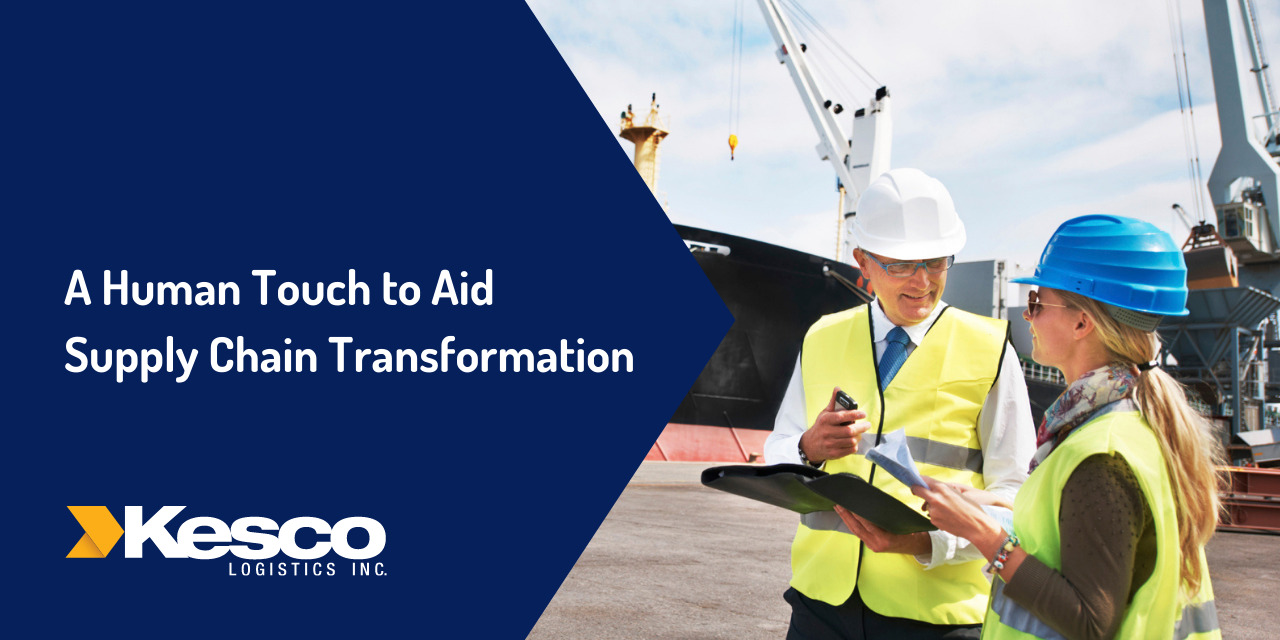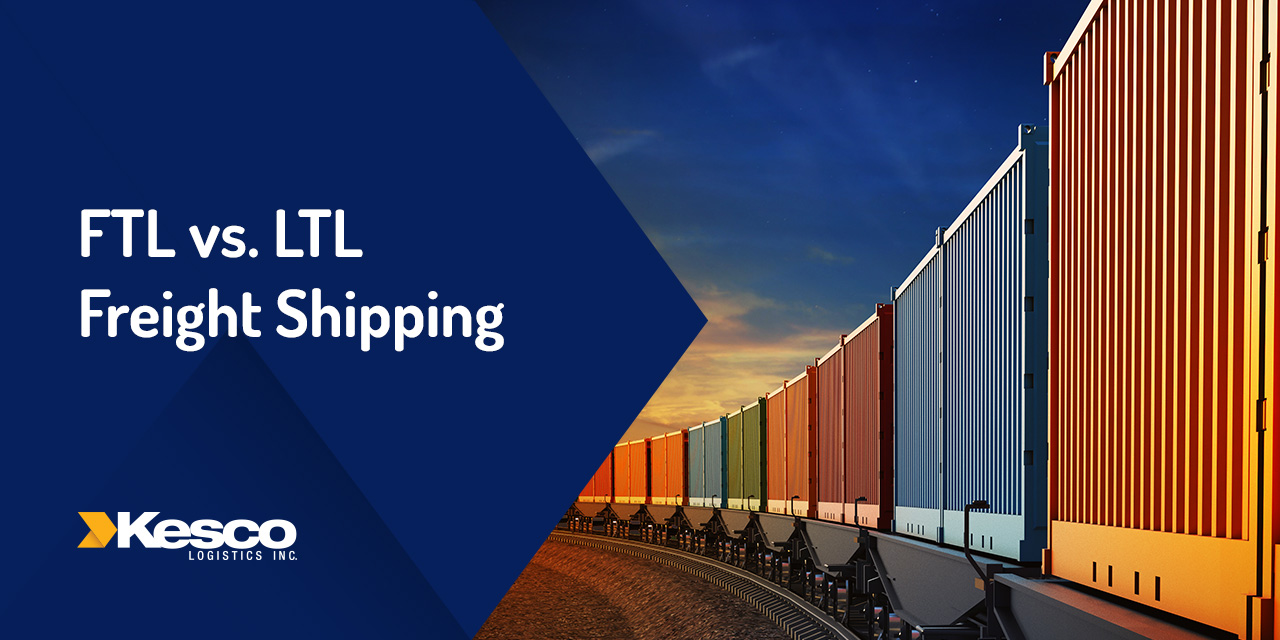FCL Shipping Defined | The Cost of FCL Shipping | Pros and Cons of Shipping FCL | When to Ship FCL | FCL Shipping With Kesco Logistics
When shipping your goods via ocean freight, FCL is a common term you may hear thrown around. But what exactly does FCL shipping entail, and how do you know when it’s right for your order? Find out when FCL shipping is used and its benefits and disadvantages in our guide.
FCL Shipping Defined
FCL, or full container load, shipping means using an entire cargo container to handle a shipment of only your items. Despite what the name implies, you can use an entire container for your items even if you don’t fill the whole container. There are many reasons you may opt to use FCL shipping as opposed to LCL, or less than container load shipping, where your goods are consolidated with that of at least one other company.
Typical containers you can use for FCL shipping are 20 feet, 40 feet or 45 feet in length. On the smaller end, 20-foot containers can transport between 33.2 and 36.8 cubic meters. If you’re looking to ship larger loads, 45-foot containers can hold up to 86 cubic meters. FCL shipping allows you to transport extremely large, full or even oddly shaped items in a way that keeps them separate from other organizations’ goods.
The Cost of FCL Shipping
When paying to ship items as a full container load, rates are typically very straightforward. The container will be available at a fixed rate, which may vary based on the provider, size and type of container, though the price will remain the same regardless of how much space you take up within the container.
Other fees that may be associated with shipping a full container load are handling fees, specific charges from the freight forwarder and expenses for the route of transit. Knowing certain factors like route pricing can fluctuate regularly, it can be beneficial to use a transparent cost estimator to understand how rates compare.
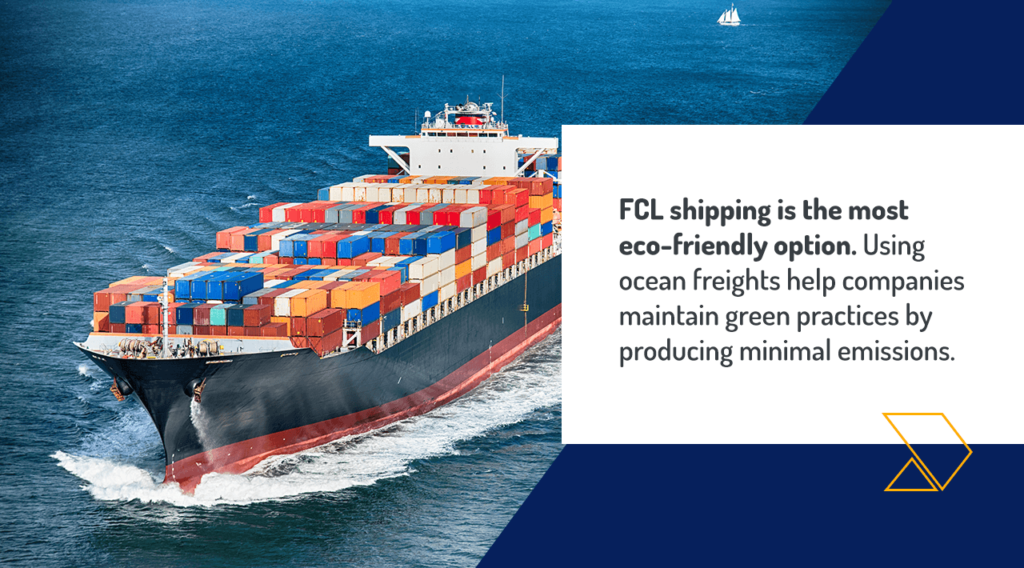
Pros and Cons of Shipping FCL
There are many perks of shipping a full container load, even if you have some leftover space in the container. Here are some of the benefits of FCL shipping:
- Pricing: In many cases, FCL is the more cost-efficient way to go when shipping via sea freight. LCL shipping is priced by volume increments, so if you’re shipping a certain amount that may fill more than half the container, the flat rate may still be cheaper per cubic meter. Plus, ocean freight is overall much cheaper than methods of shipment like air freight.
- Sole container occupancy: Since FCL shipping means your products are the only ones in the container, there are fewer opportunities for items to become damaged. When goods are consolidated, there are more checkpoints to ensure the available space is being optimized. Although uncommon, there’s always the potential risk that products will be damaged with transport. When shipping a full container load, the container never needs to be opened until it reaches its final destination.
- Minimal delay risks: Also due to the nature of handling involved with LCL shipping, there’s a lower risk of delivery delays when shipping FCL. When LCL orders are reconsolidated, there’s always a possibility that goods could get misplaced or mixed up. Alternatively, the company sharing the container could have an issue with one of its products that delays the delivery of the entire container.
- Environmentally-friendly: Compared to other methods of shipping — transport by trucks, trains or air freight — FCL shipping is the most eco-friendly option. Using ocean freights help companies maintain green practices by producing minimal emissions.
If measurements are made accurately, and you’ve ensured that FCL shipping rates are more economical for your transport, there are many upsides to shipping goods as a full container load. The only primary drawback to FCL shipping is the time it takes to arrive at its destination.
While FCL can be quicker than LCL shipping in some cases due to checkpoints and reconsolidation, LCL shipping offers express services and options. FCL shipping doesn’t offer much flexibility given that it’s a straightforward process. From start to finish, the shipping process for full containers is typically one month, but it can range from three to six weeks. Options like air freight have a much faster transit time, usually arriving at the final destination within a few days.
When to Ship FCL
FCLs are an effective option for shipping goods from different industries. If you’re shipping large quantities — or even smaller quantities that make more sense to purchase at the full container rate — FCL is an option sure to save you money and keep your goods in great shape. Although it can take longer than other methods like air travel, the delivery timeline is more reliable than if you were to ship an LCL load.
Products that are well-suited for FCL travel are items that may be heavy, awkwardly shaped or otherwise difficult to transport with other supplier products. This type of transportation can ship almost anything — methods like air freight limit the type of materials that can be transported, such as anything containing gases, flammable items, certain batteries, dry ice and other materials that could be potentially hazardous.
Common items sent via FCL shipping include e-commerce goods such as apparel and footwear, IT assets, home goods and other items that can be shipped in large quantities. The only items you shouldn’t ship via FCL are goods that could spoil in under one week or items that need to arrive in a short timeframe.
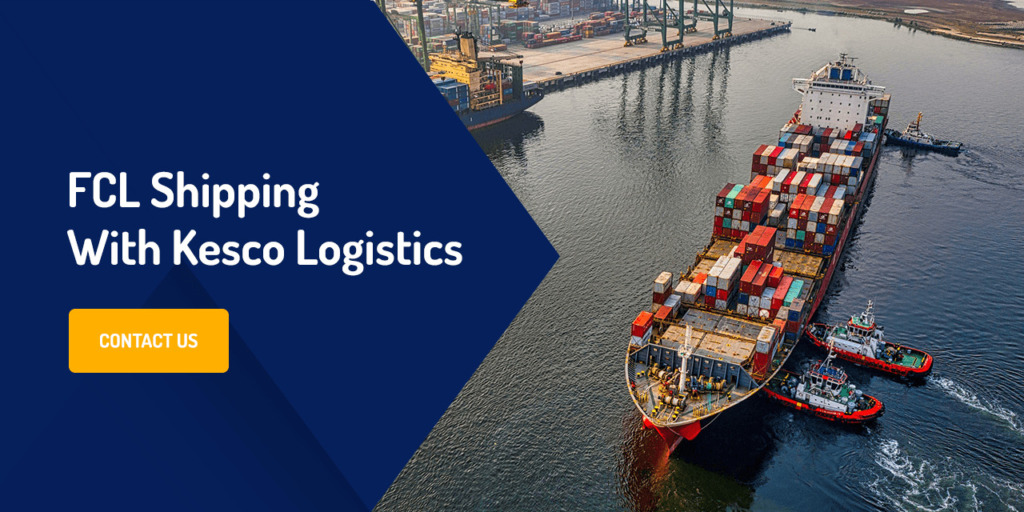
FCL Shipping With Kesco Logistics
If you’re unsure of whether LCL or FCL is better for your company, or whether ocean or air freight is better suited to your products, we can help. At Kesco Logistics, we provide FCL freight forwarding with end-to-end solutions for your supply chain needs, whether you provide retail or tech goods or you’re a startup business.
Contact us for further consultation about which services are right for you and see how we can accommodate refrigerated, overweight and other items with high-quality FCL shipping.

